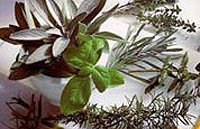
Trouver un vendeur de Plantes aromatiques medicinales bio
L'annuaire Greentrade
Cliquer sur le numéro de l'offre pour obtenir les coordonnées de la société.
Pour obtenir les adresses emails, abonnez-vous ou contactez-nous au : Tél. : +33 1 47 50 02 73
Fax : 33 1 47 50 28 67
we have very
Medicinal herbs are plentiful and Fragrant
We can provide packing according to your requirement including vacuum packing.
We can put your own label on the products.
We would be grateful to you if an opportunity is given to us to render you our service.
We thank you and look forward to hearing from you promptly.
Kind regards,
We thank you and look forward to hearing from you promptly.
Kind regards,
Mahess Boodhoo
Skype ID: mahessb13
Mobile No: +230 58609060
Whatsapp/ Viber: +230 58609060
Rep. of Mauritius
We can provide packing according to your requirement including vacuum packing.
We can put your own label on the products.
We would be grateful to you if an opportunity is given to us to render you our service.
We thank you and look forward to hearing from you promptly.
Kind regards,
We thank you and look forward to hearing from you promptly.
Kind regards,
Mahess Boodhoo
Skype ID: mahessb13
Mobile No: +230 58609060
Whatsapp/ Viber: +230 58609060
Email ID: mahess.bo@outlook.com
Rep. of Mauritius
we are a manufacturer of medicinal plants and some essences in our greenhouse in iran .
also we can manufacture any product upon your offer under a contract for your company.
we are a manufacturer of medicinal plants and some essences in our greenhouse in iran .
also we can manufacture any product upon your offer under a contract for your company.
we are a manufacturer of medicinal plants and some essences in our greenhouse in iran .
also we can manufacture any product upon your offer under a contract for your company.
we are a manufacturer of medicinal plants and some essences in our greenhouse in iran .
also we can manufacture any product upon your offer under a contract for your company.

Bulk Eucalyptus globulus essential oil
100% pure essential oil
Bulk Lavandula angustifolia essential oil
100% essential oil pure oil
Bulk Oil of Oregano
100 % Pure Oil of Oregano, Origanum vulgare, High carvacrol.
Bulk Rosemary essential oil
100% pure Essential oil
Bulk Thyme (Thymus vulgaris) essential oil
Essential oil 100% pure
Bulk Mentha spicata essential oil
100% pure essential oil
Bulk Mentha piperita essential oil
100% pure oil
Bulk citronella essential oil
100% pure essential oil
Bulk Pelargonium graveolum cv rose
100% pure essential oil
Our company only processes organic raw material. we are in process of obtaining of SATIVA certification that has been implemented from the last year.
Essential oils are produced by steam distillation.
We have ISO9001 certification in this way we can ensure the traceability of the products.
We control the quality of the products by GC-MS.
In this moment we are trying to scale up the production of raw material to increase the competitivity.
We work only with biological producers from Portugal and own production.
One of our objectives is to contribute with the development of the region of Alcoutim, that have a high rate of desertification.

Essential oils are produced by steam distillation.
We have ISO9001 certification in this way we can ensure the traceability of the products.
We control the quality of the products by GC-MS.
In this moment we are trying to scale up the production of raw material to increase the competitivity.
We work only with biological producers from Portugal and own production.
One of our objectives is to contribute with the development of the region of Alcoutim, that have a high rate of desertification.
Tous nos produits sont certifiés ECOCERT et ONSSA, 100% BIO, de très bonne qualité et sans additifs chimiques.
Nous sommes une société marocaine spécialisée dans la production de plantes aromatiques et médicinales, fraiche et séchée et dans la production d’huiles essentielles.
Nos produits répondent aux exigences de qualité sur l'échelle internationale. Ils sont 100% naturel, issues de culture biologique dans une atmosphère contrôlée, sans usage de produits chimiques. Tous nos produits sont disponibles dans la limite de nos stocks.
Notre production peut être personnalisée en fonction des besoins de nos clients. Nous garantissons une continuité ainsi que la qualité de nos plantes ainsi que nos huiles. Des échantillons peuvent être fournis sous la réserve d’une demande préalable.

Ashwagandha Root A Grade
Ashwagandha Powder A Grade
Stevia Leaves
Amla Dry Seed less Organic
Amla Dry Seed Organic
Shatavari
Shatavari Powder
Gotukala Organic
GugalGum
Annar Chilka Powder
Piper Longum
Neem Powder
Neem Leaves
Haritaki Organic
Bahera Organic
Brahmi Whole Bacopa Organic
Brahmi Whole Gotukala Organic
Moringa Leaves
Tulsi Leaves, Dried/Basil Leaves Dried
Mehndi Leaves Dried/Rosemary
Rishi Leaves/Sage :eaves
Senna Leaves
Senna P3
Senna P5
Senna T Cut












